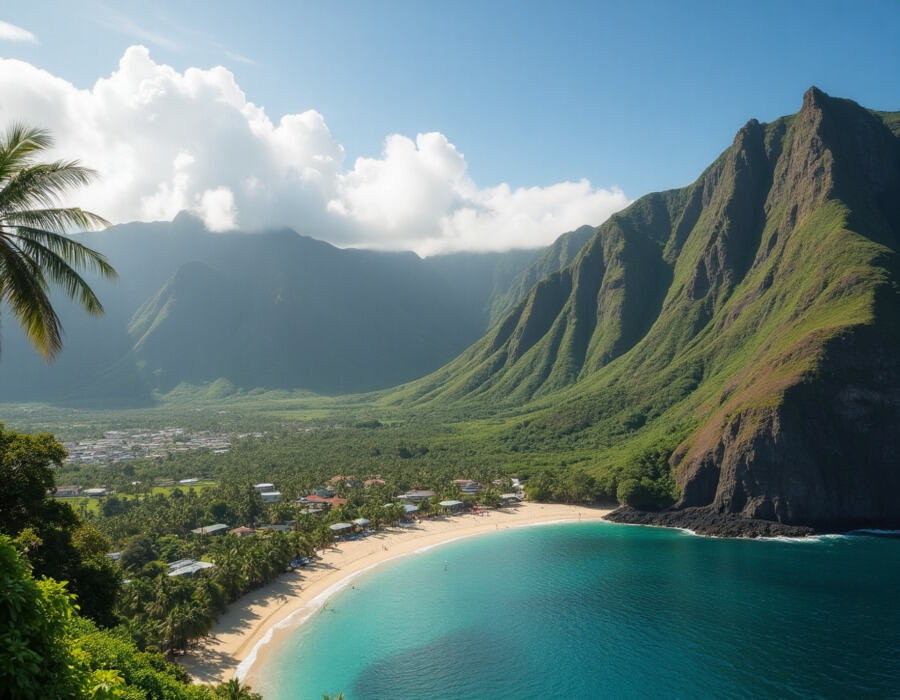<> Viral of Today <>
Home » United Kingdom Travel News » UK Visitors Prepare for Hawaii’s Bold Sustainability Drive with Introduction of Pioneering Green Tax on All Tourist Accommodations and Cruise Passengers Monday, June 2, 2025Hawaii is set to introduce a groundbreaking green tax on all tourists, including UK visitors, as part of its bold strategy to address the environmental challenges caused by high tourism volumes. This pioneering move aims to ensure that every traveler contributes fairly to the protection of the islands’ fragile ecosystems and supports vital sustainability initiatives. By implementing this tax, Hawaii seeks to balance its thriving tourism industry with urgent climate action, safeguarding its natural beauty for future generations while promoting responsible and eco-conscious travel.Hawaii to Introduce Pioneering Green Tax on Tourists to Combat Climate ImpactHawaii, one of the world’s most beloved tropical island paradises, draws over 9.6 million visitors annually, attracted by its stunning beaches, lush landscapes, and vibrant culture. However, with tourism playing a major role in the state’s economy, the environmental toll of millions of annual visitors has become a growing concern. In a landmark decision, Hawaii is set to become the first U.S. state to impose a “green tax” on all tourists staying in hotels, vacation rentals, and other short-term accommodations, as well as cruise ship passengers docking at its ports. This initiative is designed to address the ecological challenges posed by high visitor numbers and support efforts to protect the islands’ unique natural environment.The New Green Tax ExplainedThe legislation, which will take effect on January 1, 2026, introduces an increase of 0.75% to the existing transient accommodations tax (TAT). More notably, it expands the scope of this tax to include cruise ship travelers, who were previously exempt. Under the new rules, cruise passengers arriving in Hawaii will now contribute to the tourism tax pool, which is aimed at funding sustainability and conservation programs.To illustrate the impact on travelers, a hotel stay costing $300 per night would incur an additional $2.25 in taxes under this scheme. While seemingly modest on a nightly basis, this increase reflects a broader effort to ensure that all visitors—regardless of their mode of arrival—share responsibility for the environmental footprint they leave behind.Currently, Hawaii imposes a 10.25% transient accommodations tax on daily lodging charges, which is set to increase to 11% with the new environmental tax. Additionally, every county in Hawaii adds a separate 3% surcharge. On top of this, a combined general excise tax of 4.712% is imposed by the state and counties on goods and services, including lodging. When these taxes are combined, tourists face an overall tax rate nearing 19% on their accommodations.Addressing Climate Change and Tourism’s ImpactHawaii’s decision to introduce this green tax comes amid growing concerns over climate change and the increasing frequency of natural disasters such as hurricanes, flooding, and coastal erosion, which have all affected the islands in recent years. Tourism, while a major economic driver, has been identified as one of the contributors to environmental degradation through increased waste, energy consumption, and pressure on natural resources.Officials argue that the new tax will provide crucial funding to support environmental protection measures, infrastructure improvements, and programs to mitigate the adverse effects of tourism. These could include investments in renewable energy, waste management, water conservation, and the preservation of delicate ecosystems such as coral reefs and native forests.By requiring tourists to contribute more directly, Hawaii aims to promote sustainability within the tourism industry and encourage responsible travel practices.Ensuring Fairness Across the Tourism IndustryOne of the key changes in the new law is the inclusion of cruise ship passengers in the tax base. Historically, cruise tourists arriving in Hawaii were exempt from paying the transient accommodations tax, creating an imbalance in how different types of visitors contributed to the state’s upkeep. This exemption was often criticized for creating unfair competition between cruise lines and hotels or vacation rentals.With this tax reform, the state seeks to level the playing field and ensure all visitors pay their fair share, regardless of whether they arrive by air or sea. This move reflects a broader trend toward equity and accountability in tourism taxation policies seen in many global destinations.Public and Industry ReactionsWhile the state government anticipates that the increased tax revenue will be instrumental in preserving Hawaii’s environment and sustaining its tourism industry in the long term, reactions from the public and tourism stakeholders have been mixed.Some local environmental groups and policymakers have applauded the initiative, emphasizing that responsible tourism is vital to protecting Hawaii’s future. They argue that a small increase in tax is a reasonable price for visitors to pay in order to maintain the natural beauty and cultural heritage that draws millions of tourists to the islands each year.Conversely, some industry insiders and travel advocates have voiced concerns that the higher costs might deter potential visitors, especially as other popular destinations compete for tourism dollars. There is a worry that even a slight price increase could push travelers to consider alternative locations, potentially impacting hotel occupancy rates and the broader tourism economy.Additionally, some visitors may be discouraged by the added financial burden, particularly those planning longer stays or family vacations where the costs can accumulate.The Broader Context of Tourism and Environmental SustainabilityHawaii’s move is part of a growing global trend where popular tourist destinations are exploring ways to balance economic benefits with environmental responsibility. From introducing visitor caps and reservation systems in fragile natural areas to imposing eco-taxes, governments are recognizing the need to protect their environments from the pressures of mass tourism.Similar “green taxes” or environmental levies have been adopted in various countries, including parts of Europe and Asia, aimed at raising funds for conservation projects and sustainable infrastructure. However, Hawaii stands out as the first U.S. state to implement such a tax specifically targeting the travel and hospitality sectors with a clear environmental objective.Hawaii is introducing a new green tax on all tourists, including UK travelers, to fund critical environmental protection and promote sustainable tourism. This bold move ensures visitors contribute fairly to preserving the islands’ fragile ecosystems.Looking AheadAs the green tax is set to take effect in 2026, all eyes will be on Hawaii to see how this policy influences both tourism flows and environmental outcomes. The success of the tax will largely depend on how the additional revenue is used and communicated to the public. Transparent use of funds and visible improvements in sustainability could help build support among tourists and the local community alike.In the end, Hawaii’s decisive move highlights the increasing recognition that sustainable tourism depends on a strong commitment to protecting the environment. By making every visitor a contributor to this cause, the island hopes to safeguard its paradise for generations to come while continuing to welcome travelers from around the world.
This information will surprise you!
See also
- Read until the end to discover everything.
- Important information you need to know.
- Interesting facts and helpful tips.
Conclusion
Did you enjoy the news? Keep following us daily!

